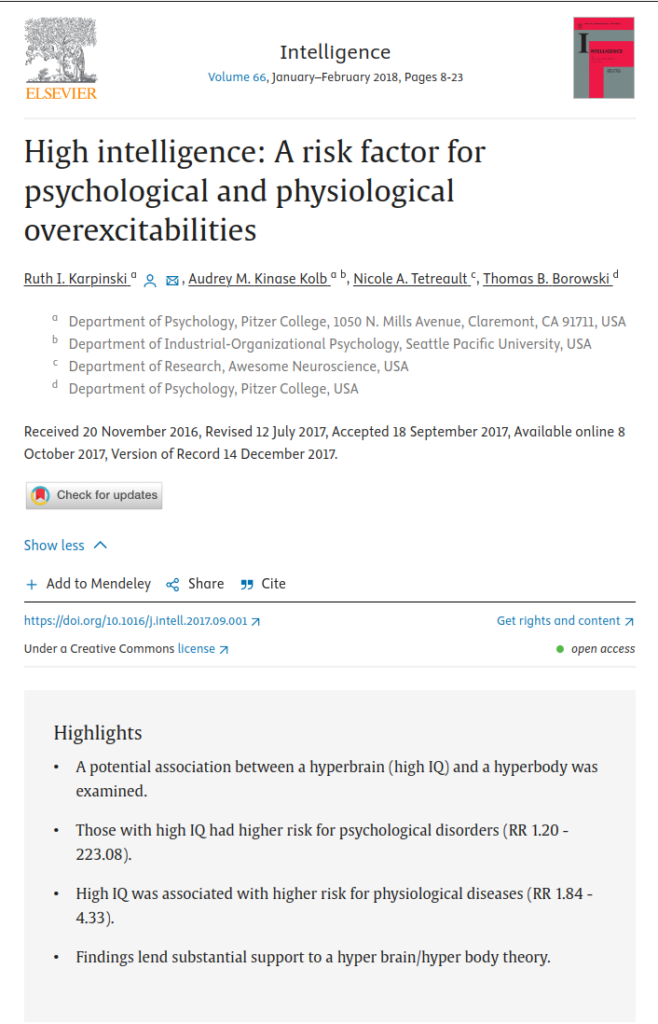High intelligence is touted as being predictive of positive outcomes including educational success and income level. However, little is known about the difficulties experienced among this population. Specifically, those with a high intellectual capacity (hyper brain) possess overexcitabilities in various domains that may predispose them to certain psychological disorders as well as physiological conditions involving elevated sensory, and altered immune and inflammatory responses (hyper body). The present study surveyed members of American Mensa, Ltd. (n = 3715) in order to explore psychoneuroimmunological (PNI) processes among those at or above the 98th percentile of intelligence. Participants were asked to self-report prevalence of both diagnosed and/or suspected mood and anxiety disorders, attention deficit hyperactivity disorder (ADHD), autism spectrum disorder (ASD), and physiological diseases that include environmental and food allergies, asthma, and autoimmune disease. High statistical significance and a remarkably high relative risk ratio of diagnoses for all examined conditions were confirmed among the Mensa group 2015 data when compared to the national average statistics. This implicates high IQ as being a potential risk factor for affective disorders, ADHD, ASD, and for increased incidence of disease related to immune dysregulation. Preliminary findings strongly support a hyper brain/hyper body association which may have substantial individual and societal implications and warrants further investigation to best identify and serve this at-risk population.
High intelligence: A risk factor for psychological and physiological overexcitabilities
Publication
Intelligence
Volume 66, Pages 8-23
Abstract
Web and Email Links
Related Listings
Journal
The Lancet
To determine whether decreased sympathetic-nervous-system activity achieved by the relaxation response could decrease premature ventricular contractions (P.V.C.S), eleven ambulatory patients with proven, stable ischæmic heart-disease and P.V.C.s were investigated. The patients, who were taking no medication for the P.V.C.S, were trained to elicit regularly the relaxation response through a non-cultic psychological technique. The frequency of the P.V.C.s was measured by computer analys […]
Journal
Nature Scientific Reports
Intelligence is a fundamental ability that sets humans apart from other animal species. Despite its importance in defining human behaviour, the neural networks responsible for intelligence are not well understood. The dominant view from neuroimaging work suggests that intelligent performance on a range of tasks is underpinned by segregated interactions in a fronto-parietal network of brain regions. Here we asked whether fronto-parietal interactions associated with intelligence are ubi […]
Journal
Journal of Cardiovascular Nursing
Hypertension is one of the leading health problems in the United States. It is commonly accepted that as many as 60 million Americans have hypertension, with the majority (>70%) having mild elevations (diastolic pressure range, 90-104 mm Hg). The treatment of hypertension accounts for more office visits to health care providers and more treatment than any other medical diagnosis. A 1980 National Institutes of Health survey showed that about 2% of visits to health care providers wer […]

